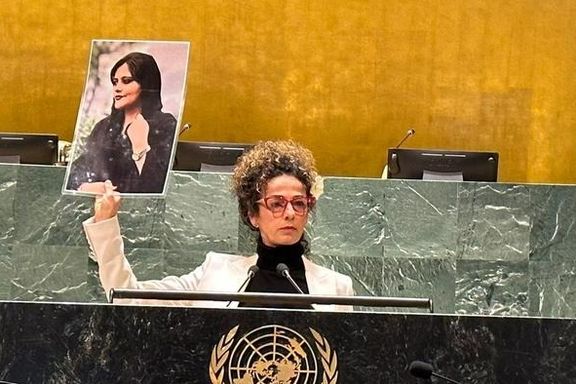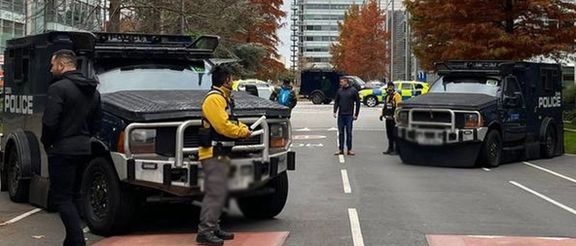Masih Alinejad: World Must Do More To Protect Journalists

Iranian American journalist, author, and women's rights campaigner Masih Alinejad presented a draft resolution to the UN condemning targeting journalists.

Iranian American journalist, author, and women's rights campaigner Masih Alinejad presented a draft resolution to the UN condemning targeting journalists.
In her campaign, coinciding with World Press Freedom Day, she called upon the UK to sponsor the resolution in a bid to recognize the threats made to Iran International journalists who in February, were forced to evacuate the London offices and relocate to Washington after being warned that authorities could no longer protect them from threats originating with Iranian agents.
"The UK government actually asked one of the biggest [broadcasters], Iran International TV, to stop its activities and to move from the UK. It was advice. So, I want to call on you, the UK government … and the General Assembly to pass this [resolution]," Alinejad told delegations in attendance in the General Assembly Hall.

The appeal comes just days after it was revealed that Iran is the world’s second worst country, only after China, for the repression and imprisonment of journalists.
Worsened by revolutionary unrest, Iran jailed three times the number of writers in 2022 than 2021 as it cracked down on voices of dissent. The findings, from PEN America’s latest Freedom To Write Index, showed the extent of oppression haunting the country’s writers and journalists, heightened after the death in custody of 22-year-old Mahsa Amini in September.
Alinejad, who was forced into exile in 2009, is an outspoken critic of the Islamic Republic, and the founder of a campaign against gender apartheid practices in that country, where women who choose to appear in public without a hijab risk fines, arrest, imprisonment, and death.
In 2021, the US Department of Justice announced conspiracy charges against Iranian agents that sought to kidnap Alinejad from New York and rendition her to the Islamic Republic. Earlier this year, the Justice Department filed charges in a murder-for-hire plot directed against her by the Iranian regime.
Within Iran, the Intelligence Ministry has reportedly ordered journalists and activists to remove posts on social media about chemical attacks perpetrated against schoolgirls, and dozens of journalists have been arrested over the last seven months because they reported on nationwide anti-regime protests sparked by the death of 22-year-old Mahsa Amini while in police custody for allegedly violating the compulsory hijab laws.
Alinejad has long been a proponent for oppressed journalists who are living in fear both at home and abroad as the Iran International case proved. She said that with more than 70 journalists currently in jail in Iran, the risks continue.
She recently said: "The Islamic Republic uses the tools of the state – surveillance, intimidation, violence, and a corrupt judiciary – to browbeat people into submission, but they are failing. Even though being a journalist in Iran can land you in jail, can get you killed, can get you tortured, they are failing. But they cannot be left to fight alone.”
Some of the country’s leading voices have been severely punished in recent months including Nasrin Sotoudeh, who was threatened with being returned to jail after speaking to or writing for international media outlets; author and activist Narges Mohammadi, who bravely continued to speak out from Evin prison; and writer Golrokh Ebrahimi Iraee, arrested in September.
Last week, Karin Deutsch Karlekar, PEN America’s director of Free Expression at Risk Programs, said: “Iran’s creative community—long at the forefront of fighting for free expression and human rights—was singled out as part of a broader crackdown on dissent in 2022. Alongside the dozens of writers and artists detained, the harsh sentences handed down and custodial abuse faced by some prisoners were an attempt to warn others to keep silent.”